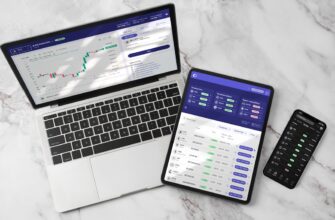Why Buy Cryptocurrency in Zimbabwe?
Zimbabwe’s economic volatility and hyperinflation have driven many to explore cryptocurrencies as alternative stores of value. With traditional banking limitations and currency instability, crypto offers:
- Borderless transactions for remittances
- Inflation hedging against the Zimbabwean dollar
- Access to global financial markets
- Lower fees than traditional money transfer services
Step-by-Step Guide: How to Buy Crypto in Zimbabwe
- Choose a Reliable Exchange: Opt for platforms like Binance, Paxful, or LocalBitcoins that support Zimbabwean users.
- Create an Account: Sign up with email/phone and enable two-factor authentication (2FA).
- Complete Verification: Submit ID documents (passport/national ID) for KYC compliance.
- Fund Your Account: Deposit via:
- Bank transfer (USD or ZWL)
- Mobile money (EcoCash, OneMoney)
- Peer-to-peer (P2P) trading
- Buy Cryptocurrency: Select your preferred crypto (e.g., Bitcoin, USDT) and execute the trade.
- Secure Your Assets: Transfer coins to a private wallet like Trust Wallet or Ledger hardware wallet.
Popular Cryptocurrencies to Consider
- Bitcoin (BTC): Most widely accepted for payments and trading
- Ethereum (ETH): For smart contracts and DeFi access
- Stablecoins (USDT, USDC): Hedge against volatility with USD-pegged assets
- Binance Coin (BNB): Low-fee trading on Binance ecosystem
Payment Methods for Buying Crypto in Zimbabwe
Zimbabweans primarily use:
- Mobile Money: EcoCash dominates with 90% market share; integrated with exchanges like Golix.
- Bank Transfers: USD or ZWL deposits via Stanbic, CBZ, or Standard Chartered.
- P2P Platforms: Direct trades with verified sellers on Paxful or LocalBitcoins.
- Cash Deposits: Available through select exchange partners.
Understanding the Legal Landscape
While Zimbabwe hasn’t fully regulated crypto, the Reserve Bank of Zimbabwe (RBZ) permits trading under these conditions:
- Cryptocurrencies aren’t legal tender but can be held as assets
- Exchanges must comply with AML/CFT regulations
- Tax obligations apply on capital gains (consult ZIMRA)
- Avoid unlicensed platforms to prevent scams
Staying Safe: Crypto Security Tips
- Use exchanges with Zim-specific KYC procedures
- Never share private keys or 2FA codes
- Enable withdrawal whitelisting
- Verify P2P trader ratings before transacting
- Store bulk assets in cold wallets
Frequently Asked Questions (FAQs)
1. Is cryptocurrency legal in Zimbabwe?
Yes, but unregulated. The RBZ allows ownership as digital assets, though bans exist for banking institutions dealing in crypto.
2. What’s the best cryptocurrency exchange in Zimbabwe?
Binance P2P and Paxful lead for liquidity, while Golix excels for mobile money integration. Compare fees and payment options.
3. Can I buy crypto with EcoCash in Zimbabwe?
Absolutely. Most exchanges accept EcoCash USD or ZWL wallets. Golix processes transactions in under 10 minutes.
4. How do I store cryptocurrency safely?
Withdraw from exchanges to non-custodial wallets. Use hardware devices (Ledger) for large holdings or Trust Wallet for mobile access.
5. Are there taxes on cryptocurrency in Zimbabwe?
Capital gains tax applies to profits. Track transactions and declare income to ZIMRA. Consult a tax professional for compliance.








